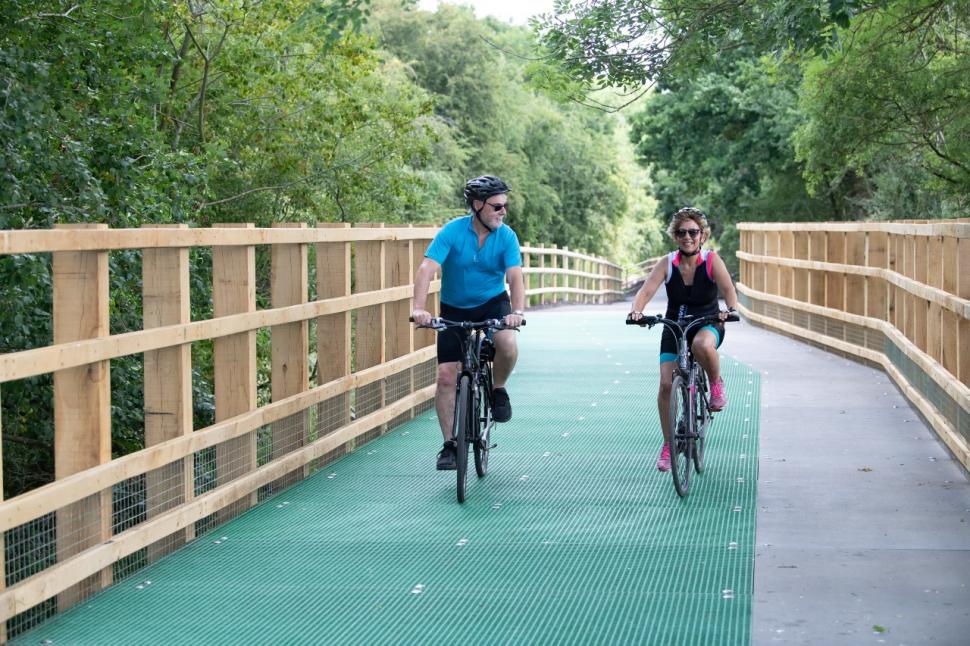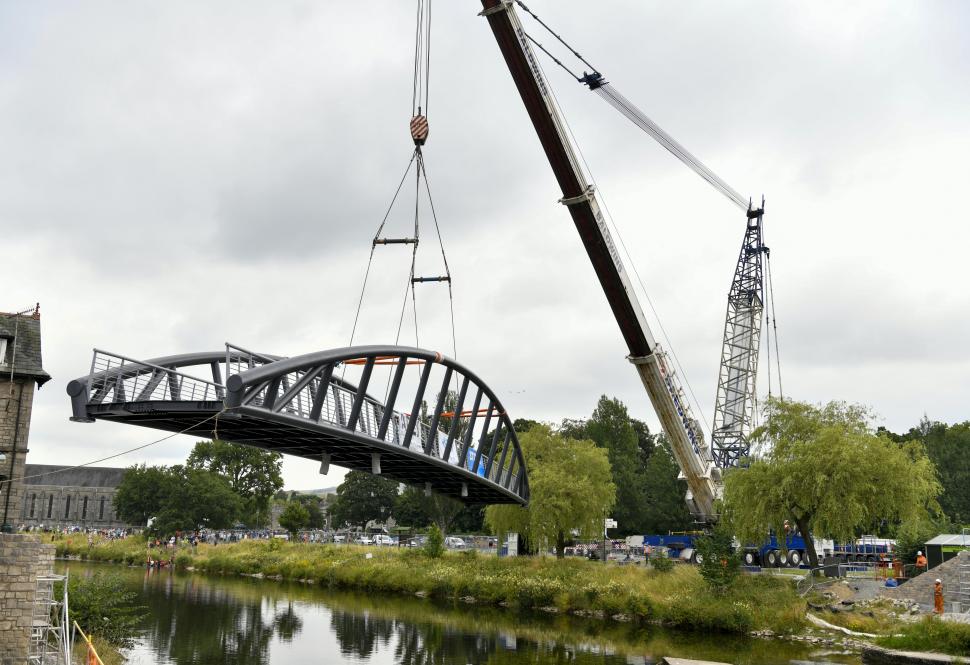- News
- Reviews
- Bikes
- Components
- Bar tape & grips
- Bottom brackets
- Brake & gear cables
- Brake & STI levers
- Brake pads & spares
- Brakes
- Cassettes & freewheels
- Chains
- Chainsets & chainrings
- Derailleurs - front
- Derailleurs - rear
- Forks
- Gear levers & shifters
- Groupsets
- Handlebars & extensions
- Headsets
- Hubs
- Inner tubes
- Pedals
- Quick releases & skewers
- Saddles
- Seatposts
- Stems
- Wheels
- Tyres
- Tubeless valves
- Accessories
- Accessories - misc
- Computer mounts
- Bags
- Bar ends
- Bike bags & cases
- Bottle cages
- Bottles
- Cameras
- Car racks
- Child seats
- Computers
- Glasses
- GPS units
- Helmets
- Lights - front
- Lights - rear
- Lights - sets
- Locks
- Mirrors
- Mudguards
- Racks
- Pumps & CO2 inflators
- Puncture kits
- Reflectives
- Smart watches
- Stands and racks
- Trailers
- Clothing
- Health, fitness and nutrition
- Tools and workshop
- Miscellaneous
- Buyers Guides
- Features
- Forum
- Recommends
- Podcast
OPINION
For Net Zero, cost of living and the NHS: leaders must double down on Government active travel promises
 Lias Line (picture credit Mark Radford Photography)
Lias Line (picture credit Mark Radford Photography)Whoever wins the Conservative leadership election, we lose a benefactor of cycling and walking and their vital public health benefits. This is at a time when physical inactivity costs the at-breaking-point NHS £900 million a year, and driving a car is becoming increasingly unaffordable, not to mention the damage to the environment.
Rishi Sunak and Liz Truss must commit to long-term funding for walking and cycling, and to embed the principle of 20-minute neighbourhoods into planning policy, so that new homes are only built if they’re within a 20-minute walking round trip, of amenities like GPs, shops and primary schools. Walking and cycling locally means more exercise, safer roads, better air quality and, ultimately, healthier and happier communities.
The current administration’s 2020 investment of £2 billion in walking and cycling schemes to help level up the country was welcome, and we’re asking that this be increased for the long-term by the next occupant of 10 Downing Street. By contrast, £27 billion is spent on roads.
Embedding physical activity into daily routines, like commuting or going to the shops, helps relieve the burden on the NHS. Building homes on former agricultural land, further and further away from basic amenities, means more car-dependent households and ever-busier country roads, which are no longer so safe for walking, cycling or horse riding.
With the cost-of-living crisis and rising cost of fuel, walking, wheeling (for example in a wheelchair or mobility scooter) and cycling should continue to be made the easiest, most obvious and convenient choice for short, everyday journeys.
In Kendal, Cumbria, Sustrans helped to provide a new footbridge across a river, for pedestrians, cyclists and wheelchair users, helping to reconnect them to their local community after Storm Desmond damaged its predecessor. This enables people to access daily the essential facilities they couldn't before, without having to rely on a car.
More active travel means safer, healthier neighbourhoods, with clearer roads for those that have no choice but to drive. Car ownership is lowest for those on the lowest incomes, while deprived communities are often in areas near busy roads with higher pollution. Air pollution causes up to 36,000 deaths per year, is linked to dementia, cancer, strokes, heart disease, and asthma, and particularly affects children and older people, according to the Royal College of Physicians.
Though guidance exists to encourage councils to ensure new homes are within 800m of local amenities, most councils would not turn down a development site simply because it was too far away, either. Just under half said political priorities or a lack of buy-in from local politicians were barriers to decision-making that would achieve 20-minute neighbourhoods.
To achieve Net Zero and address the climate crisis we need to reduce car dependency. It’s what people want, as 79 per cent of the more than 24,000 people surveyed across 18 cities in the UK and Ireland support 20-minute neighbourhoods, and two thirds of people support low-traffic neighbourhoods. These are where through-traffic, or rat-running, is reduced on residential roads so that they’re safer for walking, cycling, and for children.
We also found that, at present, just over half of disabled people and residents on low incomes don’t feel comfortable or welcome when walking where they live. Walking (or wheeling) around your local area should not be a luxury. Places that are almost entirely dependent upon private cars are fundamentally unjust and unhealthy.
People must be provided with better opportunity to choose how they travel, for the sake of the NHS, for household finances, and to save our environment. Delivering lasting change for everyone, through active travel investment, is surely a solution, instead of a cost saving measure to be made by the new Prime Minister.
More Opinion
Latest Comments
- Hirsute 2 sec ago
But what is the small print for mileage, state of the vehicle after 2 years? Lots of potential extra costs....
- Rekrab 16 min 32 sec ago
MORE LANES, MORE LANES!!!!
- Simon E 23 min 12 sec ago
The numbers don't tell anything like the whole story....
- Simon E 54 min 18 sec ago
Just squirt some thick grease all over his side windows and door panels. If you're feeling really uncharitable you could throw some sand at the...
- David9694 1 hour 34 min ago
check under 'W'for "What cars do to people"
- quiff 2 hours 14 min ago
Fascinating - I have always thought Hersheys has a whiff of vomit about it!
- Global Nomad 2 hours 15 min ago
good to see you're testing the farsports wheels - hope to see road.cc continue to expand the range of brands it considers. These or the shallower...
- chrisonabike 2 hours 18 min ago
Duly triggered! (At least "it's comedy!" though)....
- chrisotherwise 2 hours 49 min ago
Sadly very normal. And the sand contains loads of evil little shards of flint.

Add new comment
2 comments
'In Kendal, Cumbria, Sustrans helped to provide a new footbridge across a river, for pedestrians, cyclists and wheelchair users, helping to reconnect them to their local community after Storm Desmond damaged its predecessor. '
Well done, but wasn't that the government's job? Unless it was a private ( and presumably insured bridge.)
Some very good points and I heartily agree.
I'm not a fan of Sustrans routes due to their random suitability for road bikes, but overall I think it's better to have routes with dodgy sections than no routes. I'm somewhat undecided about paint-as-infrastructure as it can be more dangerous in some situations, but it does at least demonstrate that road space can be re-allocated.
I think the biggest problem with Sustrans is that they're a charity, and what we really need is government investment in active travel infrastructure.